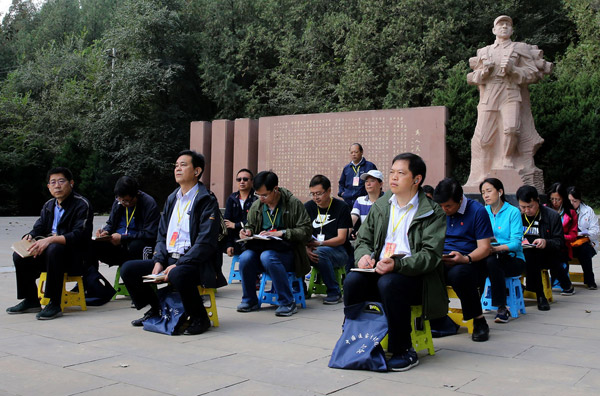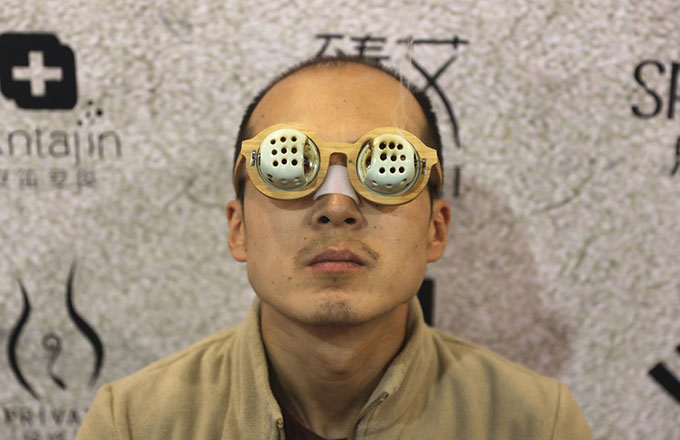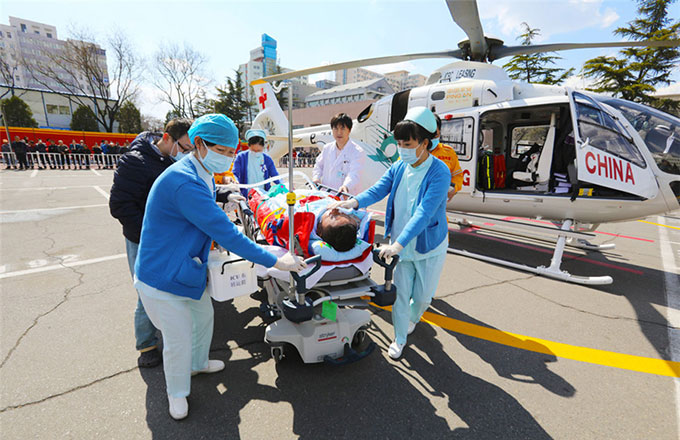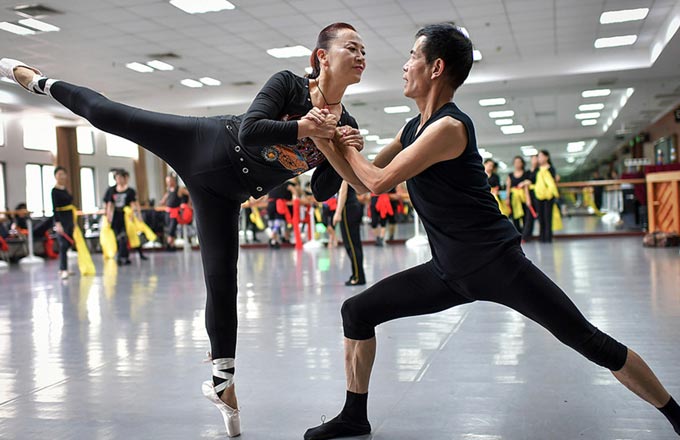'Revolution's cradle' nurtures new talents
 |
|
Cadres take a lesson at a historic site. [Photo by Huo Yan/chinadaily.com.cn] |
'Red' education
Classes usually start at 8:30 or 9 am and end at 5:30 or 6 pm. The curriculum consists of lectures, experience classes at historic sites and museum visits.
Although cadres can leave campus after class, they are encouraged to return by 10 pm. Outsiders are not allowed on campus without special approval.
However, most cadres do not leave campus unless they go on official outings, such as visiting museums, picking corn in the fields or taking experience lessons. The campus has virtually everything they need, including a bookstore, a tea house, a clinic, a gym and a supermarket.
The 17.3 hectare, pine-lined campus can accommodate 400 students at a time.
Many cadres walk or jog in the mornings and evenings. In class, males usually wear identical white shirts and black jackets - as if ordered from the same tailor - while the dress code for females is more diverse, ranging from formal suits to casual business skirts, but all show some degree of elegance.
"The training courses offer students the chance to consolidate their beliefs," said Jin Ming, the academy's vice-president.
The diverse range of lessons put forward by top Party leaders help to reinforce and shape the students' thoughts and regulate their behavior.
"The common core of my lessons is to improve the students' Party spirit," said Wang Tao, a professor at the academy.
The 37-year-old, who holds a doctorate, hopes that the training will help the students gain a deeper understanding of the Party's difficult early days and cherish the improvements they enjoy today.
"Every political party has its focus. The CPC emphasizes ideological education - without that, officials may forget the Party's mission to serve the people," he said.
Wang Zhi, an associate professor at the academy, said vigilance is essential to drive the message home.
"Officials should be repeatedly reminded of how CPC members should look at the world and the aims of the CPC. That's spiritual education," he said.
The 34-year-old associate professor, who holds a doctorate in Marxist philosophy, recalled the first time he taught a group of senior Party leaders.
"I was a little nervous at first, but I quickly recovered my composure. I was confident about my lesson plan, which I had spent two months preparing. It was my strength because it combined philosophy and Party history," he said.
"The students may excel in other aspects, such as practical experience, but in my class, I can handle them. I'm confident about that."
The end result
After the training, the cadres' thoughts are more in line with those of the Party leadership. Moreover, their awareness of being a Party member and their grasp of ideology are firmer and stronger.
Chen Yongxiang, deputy director of Yushu Tibetan autonomous prefecture, Qinghai province, said his belief in Communism is stronger after the course because the things he learned made it clear that only the CPC can develop China.
"I was moved while visiting the historic sites. The early CPC members endured such hard conditions almost beyond one's imagination. I had read about it in books, but seeing it with my own eyes was so impressive," he said.
Ding Linjie, deputy head of the Changjiang Waterway Bureau, Hubei province, said the training had given him a deeper understanding and appreciation of the president's thoughts.
"Before coming here, I studied a speech Xi gave on July 26 more than 10 times, and understood some of the values he expounded. But after hearing the teachers' analysis, I was enlightened. Their understanding is so precise and deep," he said, adding that he would pass that understanding on to his colleagues when he returned to work.





















